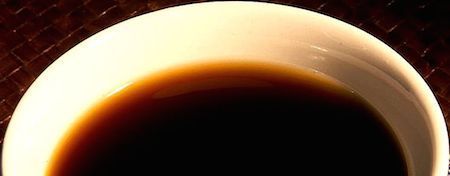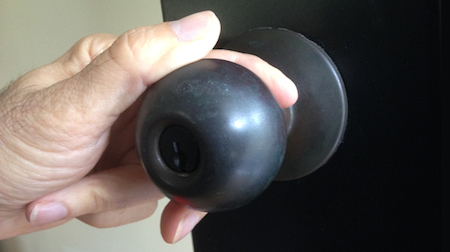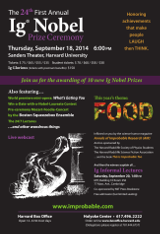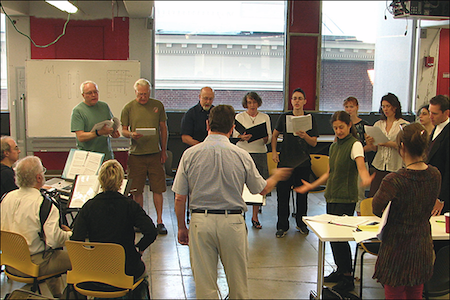Marc Abrahams's Blog, page 377
September 16, 2014
Another exciting insight: Medical effects of drinking coffee
Yet another new insight about the physiological effects of drinking coffee:
“Coffee for morning hunger pangs: an examination of coffee and caffeine on appetite, gastric emptying, and energy intake,” Matthew M. Schubert, Gary Grant, Katy Horner, Neil King, Michael Leveritt, Surendran Sabapathy, Ben Desbrow, Appetite, epub September 16, 2014. The authors, at various institutions in Australia and the US, report:
“The objective of this study was to examine the impact of coffee consumption (with and without caffeine) on appetite sensations, energy intake, gastric emptying, and plasma glucose between breakfast and lunch meals…. Utilising an ecologically valid design, no significant effects of decaffeinated coffee, caffeine or their combination were detected on gastric emptying, appetite sensations, glucose, and energy intake.”

BONUS: An interview with two of the authors, done a year ago: “How is your research going and what have been your findings so far?”

September 15, 2014
World’s most inventive inventor (and possibly greatest human) is coming to the Ig
Japan’s most famous — and most colorful — inventor/politician/author is coming to Boston this week, returning to the scene of his highest official honor.
He boasts more than 3300 patents, and dozens of books. He has repeatedly run for high political office, easily attracting more press coverage than most of his competitors. He is better known in Japan than any American inventor is in America. He is widely believed to be among the wealthiest persons in Japan. His manner is always masterly, commanding, and deadpan hilarious. He is, I think, the nearest humanity will ever see to a real-life Wizard of Oz.
He is Dr. Yoshiro Nakamatsu, aka Dr. NakaMats.
Dr. NakaMats came to Harvard in 2005, where he was awarded the Ig Nobel Prize for nutrition, for having photographed every meal he had eaten during the previous 34 years (and counting).…
So begins another Improbable Innovation nugget, which appears in its entirety on BetaBoston.
You can see Dr. Nakamats this Thursday, September 18 — in person or on the webcast — when he gives the keynote address at this year’s Ig Nobel Prize ceremony.

Ig Nobel ceremony tickets…
A few Ig Nobel Prize ceremony tickets are available. (These are tickets we had been holding in reserve for emergency needs — and have now released for sale).
They are available exclusively from the Harvard Box Office, online and at Holyoke Center.

The doc who gave out while giving sperm
“Details, please!” is the hope and plea of medical professionals everywhere, about a train of medical events reported to have happened in Wuhan, China. The hope is that the attending physicians involved in the case will publish a formal case report in a good-quality medical journal. The case, thus far, has been told only in the general press. The possibility exists that some details have been exaggerated, others neglected. Here is part of a September 11, 2014 article in Want China Times:
A court has rejected the appeal brought by the family of a doctoral student who died suddenly in 2011 while donating sperm, reports the Wuhan-based Changjiang Daily.
The man, surnamed Zheng, was an attending physician of his university’s (unspecified) affiliate hospital in the central China city. He took a master’s degree in surgery from 2008 and went on to study at the same school for his doctoral degree in 2010. Zheng agreed to help with the trial operations of the university’s sperm bank before its official opening….
He donated sperm four times over a period of eleven days. When he donated for the fifth time on Feb. 12, he did not emerge from the donation room. When staff entered the room after almost two hours, they found Zheng lying unconscious on the ground. Paramedics were unable to resuscitate him and pronounced him dead at the scene….
BONUS (unrelated, but also derived from a report in Changjiang Daily): LACK OF AIR CON REVIVES GUANGDONG TRADITION – SLEEPING WITH A WATERMELON

Spam dictionary (work in progress)
In 2003, a dictionary of Spam was created by Guy Di Mattina whilst studying at the School of Information Technology and Electrical Engineering, University of Queensland. “The first step” explains the author, “was to create a list of features that appeared in Spam or normal mail but not in both.” The results were published in a thesis entitled : ‘Spam and Open Relay Blocking System’.
Here are some examples from the dictionary :
#18. accomplishments
#496. decreased
#1023. ifdlawdodcbpbiazifdlzwtzisehisancjxwigfsawdupsjjz
#1397. museum
#3049. grandpa
#4462. wont
An article reproduced on the Radio Australia website explains more :
“[...] we all got together and we all discussed what was going on and it came out that we were using the Support Vector Machine in an unthought of way, mainly because Guy was not trained in Support Vector Machines so we didn’t know how everybody is trained to use them. We came up with something completely different just purely and simply because he didn’t know what he was doing when he started out and that’s what’s made it so effective.”

September 14, 2014
Physics and the new Ig Nobel opera (and pills, and lotsa microbes)
The Harvard Physics Department is, again this year, kindly letting us use their SciBox as rehearsal space for the new Ig Nobel mini-opera. This photo, by David Kessler, shows part of the cast, at the first full rehearsal.
The opera, called “What’s Eating You“, will premiere as part of the 24th First Annual Ig Nobel Prize ceremony, this Thursday night, September 18, at Sanders Theatre. You can watch the entire ceremony (including the opera) on the live webcast. It begins at 6:00 pm, US eastern time.
“What’s Eating You” is about people who stop eating food, and instead nourish themselves exclusively with pills. Here are some details:
Music by Wolfgang Amadeus Mozart, story and words by Marc Abrahams
Directed by Maria Ferrante, with assistance by Robin Abrahams
Arranged by Henry Akona
Conducted by Paul Glenn
Costumed by Catherine Quick Spingler
Starring Maria Ferrante, Scott Taylor
Co-starring The Microbe Choir (Kelsey Calhoun, Delphine Gabbay, Paul Goodwin, Clia Goodwin, Erika Hutchinson, Andrew B. Jones, Julia Lunetta, Sylvia Rosenberg, Daniel Rosenberg, Abby Schiff, Ted Sharp, Patrick Yacono, and some special guest microbes)
Backed by the Concentrated Forces of Nature, a distilled orchestra composed entirely of biomedical researchers Patrick Yacono and Thomas Michel
BONUS: If you’re of a mind to, poke through the Ig Nobel archives and see some of the librettos, and bits of video, from previous Ig Nobel mini-operas. We’ve done a new opera every year, beginning in 1996, when “The Cockroach Opera” debuted as part of the 6th First Annual Ig Nobel Prize ceremony.
BONUS: Here’s video of the first performance of the song “The Big Bank Theory”, in “The Big Bank Opera”, a featured part of the 19th First Annual Ig Nobel Prize ceremony, in 2009.

“Finally, My Thesis On Academic Procrastination”
No need to wait any longer to download and read this paper:
“Finally, My Thesis On Academic Procrastination,” Justin McCloskey, master’s thesis, University of Texas at Arlington, November 2011.
“References to procrastination have been dated back to as long as 3,000 years ago. However, research on procrastination is ironically enormously behind the curve in active research on its antecedents and effects. Academic procrastination is a unique outlet of procrastinatory tendencies and is the object of much less scientific research. Academic procrastination occurs when students needlessly delay completing projects, activities or assignments and has been linked to lower academic grades, poorer well-being, and more stress. Studies have found procrastination to be a vital predictor of success in college and the development of a scale upon which to measure it could be quite profitable to colleges and universities. Numerous scales such as the Lay (1986) General Procrastination Scale, the Solomon and Rothblum (1984) Procrastination Assessment Scale for Students, and the Choi and Moran (2009) scale have been used to measure procrastination. However, the Tuckman (1991) Procrastination Scale is the most widely used scale to identify academic procrastinators. The current study examined these scales as compared to a new scale, the Academic Procrastination Scale (APS).”
(Thanks to investigator Elizabeth Lopato for bringing this to our attention.)

Ig Nobel winner (Chickens Prefer Beautiful Winners) on dog breeds
BiblioChile reports on a new paper by Ig Nobel Prize winner (“Chickens Prefer Beautiful People“) Stefano Ghirlanda. Here’s an auto-translation of the beginning of that report:
How dogs movies have influenced the alteration dog breeds in the world

“Chickens prefer the pretty people” headlined an amazing scientific study published in 2002.
At work, led by Italian researcher Stefano Ghirlanda, the authors showed a group of hens several photographs of human faces previously classified according to their physical attractiveness of college students. And, seeing the two portraits, one time a beautiful person and one from an FEA, turn the goose always chose beautiful face.
For this study, Ghirlanda immediately won a prize IgNobel, a kind of alternative Nobel recognizing scientific studies that “first make people laugh and then think”. . Their work was comical, but suggested that human preferences by a person arising from general properties animal’s nervous system, also present in chickens.
Now, Ghirlanda returns to the fray with another study that also makes me smile and think of the 10 films that have most altered dogs choosing dog breeds in the world.
His new research shows the fickleness of human preferences to the hammer of popular culture.After the 1943 premiere of the film “Lassie Come Home”, for example, the number of purebred dogs in homes collie EE. UU. increased by 40% in just a couple of years . And after the launch in 1959 Disney film “The Shaggy Dog” (2006) breeding bobtail breed dogs multiplied by 100.…
The new study is: “Dog Movie Stars and Dog Breed Popularity: A Case Study in Media Influence on Choice,” Stefano Ghirlanda, Alberto Acerbi, Harold Herzog, 10 Sep 2014 | PLOS ONE.

September 13, 2014
The evil doorknob saga
HEADLINE (Vancouver Sun, November 19, 2013); “Vancouver’s ban on the humble doorknob likely to be a trendsetter”
HEADLINE: (Washington Post, September 10, 2014): “A single doorknob can contaminate up to 60 percent of people in a building in 4 hours”
But, but…


Sortable database of Ig Nobel Prize Winners
There’s now an elegant, sortable database of Ig Nobel Prize Winners. It’s made in Silk – a platform for visualizing and sharing data. Silk says that it is:
…a way to search through and filter all the Ig Nobel prizes and find strange correlations (but not necessarily causations) such as: “prize winners that contain the words ‘beer’ and ‘sex'”. The database will be built and organized with Silk’s data-publishing platform.
All 23 years of Ig Nobel winners are included (very soon it will have 24 years of data). We hope this will be a useful tool for understanding which countries have won the most Ig Nobel Peace Prizes, or which Ig Nobel Prizes have been awarded to researchers in or from Norway.
Ig® Nobel Peace Prize Winners, grouped by Country
Ig® Nobel Prize Winners with Norway as Country, grouped by Prize Category
Data from ig-nobel.silk.co
SAN FRANCISCO BONUS: Silk and WeWork are hosting an Ig Nobel Watching Party in San Fransisco on Thursday September 18th. (Public welcome, but space is limited)
BONUS: Facts And Details has a page devoted Japanese Nobel and Ig Nobel Prize winners. We applaud all attempts to find patterns and groupings in our published Ig data.
SPECIAL * SPECIAL * SPECIAL BONUS: 2010 Ig Nobel Management Prize winner Andrea Rapisarda, working independently in Italy, made their own nifty app of Ig Nobel Prize winners. You can get it free on iTunes.

Marc Abrahams's Blog
- Marc Abrahams's profile
- 14 followers






